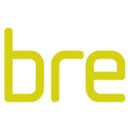BRE response to the green housing revolution
On 1 October 2019, the government unveiled what it hailed as an environmental revolution in home building; a green standard to cut carbon emissions by up to 80% for all new homes from 2025. Ref Green housing revolution.
Gillian Charlesworth, Chief Executive of BRE Group said:
“We share Government’s ambition to increase the supply of green, environmentally friendly homes that people want in their local communities.
"With the impacts of climate change already disrupting people’s homelife, through flooding and overheating, we must take every opportunity to ensure new homes have as little impact upon our climate whilst also addressing societies changing needs.
"Increasingly, we are seeing consumers wanting more from their homes and their awareness around climate and environmental issues is gaining momentum. Being able to provide new homes that meet these expectations will certainly help housebuilders achieve the Government’s ambitions on housing numbers.
"BRE has actively supported Government proposals in raising the minimum regulations through the development of SAP – the calculation methodology that sits behind Part L of the Building Regulations, and our world class research and testing on ventilation and overheating has fed into these important proposals. In addition, BRE continues to support the ambition of Government around the implementation of the Future Homes Standard.
"While having an appropriate minimum regulatory requirement is important, it is critical that we support a culture where going beyond this minimum is encouraged and this will mean that housebuilders will be able to deliver the next generation of high performing homes more quickly. The National Design Guide draws together many of the issues important to communities, much of which is reflected (in) our own benchmarks of BREEAM Communities and Home Quality Mark, which are included within the Design Guide.
"BREEAM and Home Quality Mark provide the tools and assessment frameworks to improve quality and sustainability for our new homes. They provide trust and reassurance to developers, consumers, local authorities and the financial sector through Green investment, commercial lending and personal finance.
"We must make sure these positive developments apply to all homes, not just newly built ones. BRE analysis shows that the cost of poor housing to society remains significant and so we must expect the same standards for existing homes, as well as homes which are created from other buildings.
"BRE will continue to work with Government, and the sector as a whole, to provide solutions that help deliver more high quality, sustainable homes”.
Ref https://www.bregroup.com/news/bre-welcomes-green-housing-revolution/
[edit] Related articles on Designing Buildings Wiki
Featured articles and news
Core construction skills explained
Preparing for a career in construction.
Retrofitting for resilience with the Leicester Resilience Hub
Community-serving facilities, enhanced as support and essential services for climate-related disruptions.
Some of the articles relating to water, here to browse. Any missing?
Recognisable Gothic characters, designed to dramatically spout water away from buildings.
A case study and a warning to would-be developers
Creating four dwellings... after half a century of doing this job, why, oh why, is it so difficult?
Reform of the fire engineering profession
Fire Engineers Advisory Panel: Authoritative Statement, reactions and next steps.
Restoration and renewal of the Palace of Westminster
A complex project of cultural significance from full decant to EMI, opportunities and a potential a way forward.
Apprenticeships and the responsibility we share
Perspectives from the CIOB President as National Apprentice Week comes to a close.
The first line of defence against rain, wind and snow.
Building Safety recap January, 2026
What we missed at the end of last year, and at the start of this...
National Apprenticeship Week 2026, 9-15 Feb
Shining a light on the positive impacts for businesses, their apprentices and the wider economy alike.
Applications and benefits of acoustic flooring
From commercial to retail.
From solid to sprung and ribbed to raised.
Strengthening industry collaboration in Hong Kong
Hong Kong Institute of Construction and The Chartered Institute of Building sign Memorandum of Understanding.
A detailed description from the experts at Cornish Lime.
IHBC planning for growth with corporate plan development
Grow with the Institute by volunteering and CP25 consultation.
Connecting ambition and action for designers and specifiers.
Electrical skills gap deepens as apprenticeship starts fall despite surging demand says ECA.
Built environment bodies deepen joint action on EDI
B.E.Inclusive initiative agree next phase of joint equity, diversity and inclusion (EDI) action plan.
Recognising culture as key to sustainable economic growth
Creative UK Provocation paper: Culture as Growth Infrastructure.


























